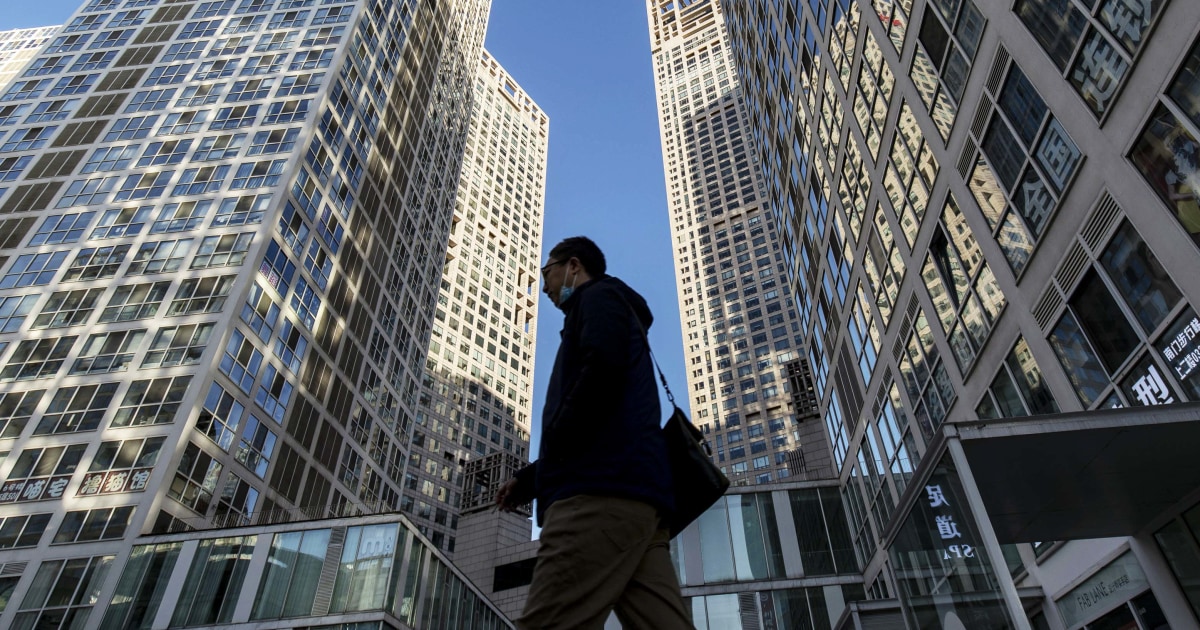Foreign business lobbies in China said on Tuesday they were puzzled by a broad crackdown on consulting and due diligence firms that is hurting investor confidence in the world’s second-biggest economy.
The European Union ambassador to China also expressed concern over what state media described as a «stepping up» of law enforcement aimed at protecting national security and an expansion of legislation criminalizing the transfer of information and data. .
The strong measures «send a worrying signal and increase the uncertainty felt by foreign companies operating in China,» the EU Chamber of Commerce in China said in a statement.
«The developments are not conducive to restoring business confidence and attracting foreign investment.»
Eric Zheng, president of the American Chamber of Commerce in Shanghai, also expressed concern about the crackdown, calling on authorities to «more clearly delineate» what areas of due diligence are allowed.
“Without proper due diligence, foreign companies will not be able to invest in new projects in China,” he said.
Foreign Ministry spokesman Wang Wenbin said the authorities had «put the relevant companies under control», aiming to «promote and standardize the healthy development of the relevant (consulting) industry.» China says it welcomes foreign investment as long as companies abide by its laws.
The scrutiny of consultancies including Capvision Partners, which state media say is aimed at stopping the theft of state secrets, including defense and technology secrets, is the latest step in a year-long campaign to tighten control of the information.
«This… is part of a broader trend in China’s tightening control over sensitive information, particularly in light of the current tension between China and the United States,» said Ani Chaudhuri, chief executive of the security platform. of Dasera data.
“The crackdown on consulting firms can be interpreted as a warning to foreign companies operating in China, highlighting the need for companies to reassess their data handling practices and security measures.”
On Monday night, state broadcaster CCTV broadcast a 15-minute report on Capvision, saying it had accepted projects from foreign companies to obtain information, including «state secrets and intelligence» in sensitive sectors such as defense and advanced technology.
“Some of these companies have close relationships with foreign governments, military and intelligence agencies,” CCTV said.
From 2017 to 2020, Capvision accepted more than 2,000 remittances worth $70 million from hundreds of foreign companies, CCTV added while broadcasting footage from Capvision offices and interviews with state security agents.
An expert hired by the firm was jailed for six years for «theft, espionage and supply of secret state intelligence abroad,» CCTV said.
Capvision said in a statement shortly after the broadcast that it would vigorously comply with national security rules. The staff declined interview requests when contacted by Reuters on Tuesday.
The CCTV report was the first clear indication of the national security scope of recent police action against various consulting firms.
In March, the Beijing office of the US law firm Mintz was raided and five Chinese employees were detained. Police visited the Shanghai office of US management consultancy Bain & Co last month.
More scrutiny is expected, state media said.
“The state security organ and other authorities will intensify law enforcement against activities that endanger national security, such as illegal consulting,” the state-run Global Times newspaper said.
Some observers said the poll was in retaliation for US attempts to block Chinese access to advanced technologies, including semiconductors, which have seen a series of sanctions imposed on Chinese companies and entities.
“It is a concrete action taken by the Chinese government to intensify the reaction against the containment of American technology,” said Shi Yinhong, a professor of international relations at Beijing Renmin University.
There is particular concern that the changes to the July 1 anti-espionage law could trap more companies.
Jorge Toledo Albinana, the EU ambassador to China, expressed concern about the strengthened law on Tuesday, saying it was «not very conducive» to China’s goal of opening up to more business abroad.
The reviews will see that all documents, data, materials and items «related to security and national interests» receive the same protection as state secrets. The law does not define China’s national security or interests.
«Virtually any information could be considered a threat to China’s national security,» said Drew Thompson, a visiting senior fellow at the Lee Kuan Yew School of Public Policy, adding that officials had «broad latitude» in enforcing the law.

